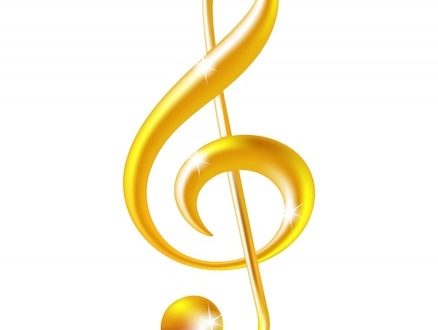
Psychology musical |
Musical psychology is the discipline that studies psychology. conditions, mechanisms and patterns of music. human activities, as well as their influence on the structure of muses. speech, on the formation and historical. the evolution of music. means and features of their functioning. As a science, music theory is fundamentally related to the field of musicology, but it is also closely related to general psychology, psychophysiology, acoustics, psycholinguistics, pedagogy, and a number of other disciplines. Music-psychological. studies are of interest in several. aspects: in pedagogical., associated with the education and training of musicians, in musical-theoretical. and aesthetic, concerning the problems of reflection in music of reality, in socio-psychological, affecting the patterns of existence of music in society in decomp. genres, situations and forms, as well as in the actual psychological., which is of interest to scientists from the point of view of the most common tasks of studying the human psyche, his creative work. manifestations. In its methodology and methodology P. m., developed by owls. researchers, relies, on the one hand, on the Leninist theory of reflection, on the methods of aesthetics, pedagogy, sociology, and natural sciences. and exact sciences; on the other side – to the music. pedagogy and the system of methods for studying music that has developed in musicology. The most common specific methods of P. m. include pedagogical, laboratory and sociology, observations, collection and analysis of sociological. and socio-psychological. data (based on conversations, surveys, questionnaires), the study of those recorded in literature – in memoirs, diaries, etc. – data of introspection of musicians, special. music products analysis. creativity (composition, performance, artistic description of music), statistical. processing of received actual data, experiment and decomp. methods of hardware fixation acoustic. and physiological. music scores. activities. P. m. covers all types of music. activities – composing music, perception, performance, musicological analysis, music. education – and is divided into a number of interrelated areas. The most developed and promising in scientific and practical. relation: music-pedagogical. psychology, including the doctrine of music. hearing, music abilities and their development, etc.; psychology of music perception, considering the conditions, patterns and mechanisms of artistically meaningful perception of music; psychology of the creative process of composing music; psychology of musical-performing activity, considering the psychological. regularities of concert and pre-concert work of a musician, questions of the psychology of music interpretation and the impact of performance on listeners; social psychology of music.
In his historical The development of musical music reflects the evolution of musicology and aesthetics, as well as general psychology and other sciences related to the study of man. As an autonomous scientific discipline P. m. took shape in the middle. 19th century as a result of the development of experimental psychophysiology and the development of the theory of hearing in the works of G. Helmholtz. Until that time, questions of music. psychology were touched upon only in passing in the musical-theoretical, aesthetic. writings. In the development of music psychology, a great contribution was made by the work of zarub. scientists – E. Mach, K. Stumpf, M. Meyer, O. Abraham, W. Köhler, W. Wundt, G. Reves and a number of others who studied the functions and mechanisms of music. hearing. In the future, the problems of the psychology of hearing were developed in the works of owls. scientists – E. A. Maltseva, N. A. Garbuzova, B. M. Teplov, A. A. Volodina, Yu. N. Rags, O. E. Sakhaltuyeva. Problems of the psychology of music. perceptions are developed in the book by E. Kurt “Musical Psychology”. Despite the fact that Kurt relied on the ideas of the so-called. Gestalt psychology (from German. Gestalt – form) and the philosophical views of A. Schopenhauer, the material of the book itself, its specific musical and psychological. problems served as the basis for the further development of the psychology of music. perception. In this area, in the future, many works of foreign and owls appeared. researchers – A. Wellek, G. Reves, S. N. Belyaeva-Kakzemplyarskaya, E. V. Nazaykinsky and others. In the works of owls. music scientists. perception is considered as a complex activity aimed at adequate reflection of music and uniting the actual perception (perception) of music. material with music data. and general life experience (apperception), cognition, emotional experience and evaluation of products. An essential part of P. m. is muz.-pedagogich. psychology, especially the psychology of music. abilities, the research of B. Andrew, S. Kovacs, T. Lamm, K. Sishor, P. Mikhel, the works of S. M. Maykapar, E. A. Maltseva, B. M. Teplov, G Ilina, V. K. Beloborodova, N. A. Vetlugina. K ser. 20th century the problems of social psychology are gaining more and more weight (see Sociology of Music). She was given attention in her writings zarub. scientists P. Farnsworth, A. Sofek, A. Zilberman, G. Besseler, owls. researchers Belyaeva-Ekzemplyarskaya, A. G. Kostyuk, A. N. Sokhor, V. S. Tsukerman, G. I. Pankevich, G. L. Golovinsky and others. To a much lesser extent, the psychology of composer creativity and music has been developed. execution. All areas of music. psychology are united into a single whole by a system of concepts and categories of general psychology, and most importantly, by a focus on music. theory and practice.
References: Maykapar S., Ear for music, its meaning, nature, features and method of proper development. P., 1915; Belyaeva-Kakzemplyarskaya S., On the psychology of music perception, M., 1923; her, Notes on the psychology of time perception in music, in the book: Problems of musical thinking, M., 1974; Maltseva E., The main elements of auditory sensations, in the book: Collection of works of the physiological and psychological section of the HYMN, vol. 1, Moscow, 1925; Blagonadezhina L., Psychological analysis of the auditory representation of a melody, in the book: Uchenye zapiski Gos. Scientific Research Institute of Psychology, vol. 1, M., 1940; Teplov B., Psychology of musical abilities, M.-L., 1947; Garbuzov N., Zone nature of pitch hearing, M.-L., 1948; Kechkhuashvili G., On the problem of the psychology of music perception, in the book: Questions of Musicology, vol. 3, M., 1960; his, On the role of attitude in the evaluation of musical works, “Questions of Psychology”, 1975, No 5; Mutli A., Sound and hearing, in the book: Questions of musicology, vol. 3, M., 1960; Ilyina G., Features of the development of musical rhythm in children, “Questions of Psychology”, 1961, No 1; Vygotsky L., Psychology of art, M., 1965; Kostyuk O. G., Spriymannya music and art culture of the listener, Kipv, 1965; Levi V., Questions of the psychobiology of music, “SM”, 1966, No 8; Rankevich G., Perception of a musical work and its structure, in the book: Aesthetic essays, vol. 2, M., 1967; her, Social and typological features of the perception of music, in the book: Aesthetic essays, vol. 3, M., 1973; Vetlugin H. A., Musical development of the child, M., 1968; Agarkov O., On the adequacy of the perception of a musical meter, in the book: Musical Art and Science, vol. 1, M., 1970; Volodin A., The role of the harmonic spectrum in the perception of pitch and timbre of sound, ibid.; Zuckerman W. A., On two opposite principles of the listener’s disclosure of the musical form, in his book: Musical-theoretical essays and etudes, M., 1970; Sohor A., On the tasks of the study of musical perception, in the book: Artistic perception, part 1, L., 1971; Nazaykinsky E., On the psychology of musical perception, M., 1972; his, On constancy in the perception of music, in the book: Musical Art and Science, vol. 2, M., 1973; Zuckerman V. S., Music and listener, M., 1972; Aranovsky M., On the psychological prerequisites for subject-spatial auditory representations, in the book: Problems of musical thinking, M., 1974; Blinova M., Musical creativity and patterns of higher nervous activity, L., 1974; Gotsdiner A., On the stages of formation of musical perception, in the book: Problems of musical thinking, M., 1974; Beloborodova V., Rigina G., Aliev Yu., Musical perception of schoolchildren, M., 1975; Bochkarev L., Psychological aspects of the public performance of performing musicians, “Questions of Psychology”, 1975, No 1; Medushevsky V., On the laws and means of artistic influence of music, M., 1976; Helmholtz H., Die Lehre von den Tonempfindungen als physiologische Grundlage für die Theorie der Musik, Braunschweig, 1863; Stumpf K., Tonpsychologie. Bd 1-2, Lpz., 1883-90; Pilo M., Psicologia musicale, Mil., 1904; Seashore C., The psychology of musical talent, Boston, 1919; его же, Psychology of music, N. Y.-L., 1960; Кurth E., Music Psychology, В., 1931; Rйvйsz G., Introduction to Music Psychology, Bern, 1946; Вimberg S., Introduction to Music Psychology, Wolfenbuttel, 1957; Parnsworth P, The social psychology of music, N. Y., 1958; Francиs R., The perception of music. P., 1958; Lundin H., An objective psychology of music, N.
E. V. Nazaikinskiy



